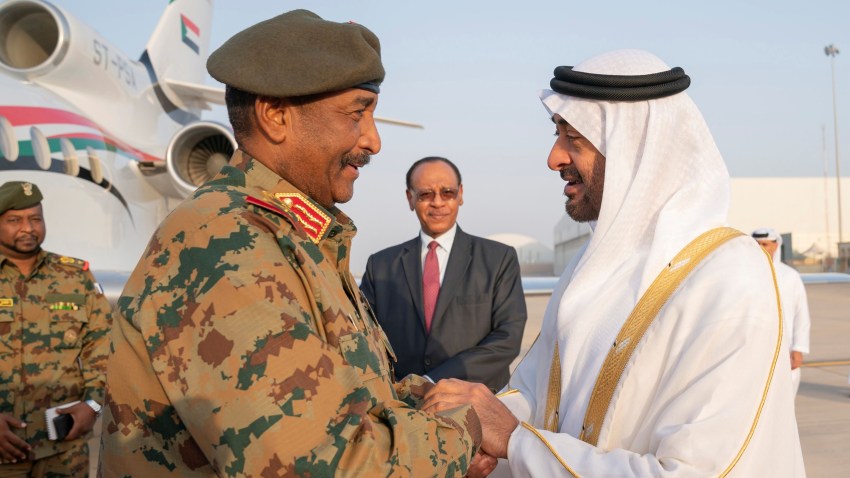Among the many conflicts that have broken out over the past decade, few have been predicted by so many observers, so far in advance, as the fighting that erupted on April 15 in Sudan’s capital, Khartoum. The growing tensions between the Rapid Support Forces, or RSF, under the command of Gen. Mohamed Hamdan Dagalo, and the Sudanese armed forces, led by Gen. Abdel Fattah al-Burhan, had become increasingly visible in recent months.
But those tensions preceded the popular uprising that brought about the fall of former President Omar al-Bashir’s authoritarian regime in April 2019. Though the two rival forces worked in tandem in 2021 to seize power from the military-civilian hybrid government that was supposed to guide the transition to democracy after Bashir’s fall, many Sudanese viewed that as a sign that both sides were in fact gearing up for a wider battle over control of the Sudanese state and economy.
Almost every external and domestic powerbroker that has exerted influence over Sudan’s development over the past four decades shares in the blame for this devastating cycle of violence. It starts with the willingness of governments in Khartoum to rely on irregular militias to suppress South Sudanese aspirations for independence and rebellions in the western Darfur region. That enabled figures like Dagalo—commonly referred to by his nickname, Hemedti—to use their armed groups to build business empires involving livestock and gold trading. Similarly, Sudanese governments of all stripes also allowed the armed forces to expand their autonomous business interests, which explains the military leadership’s unwillingness to share power with civilian or paramilitary rivals that could threaten its revenue streams.

